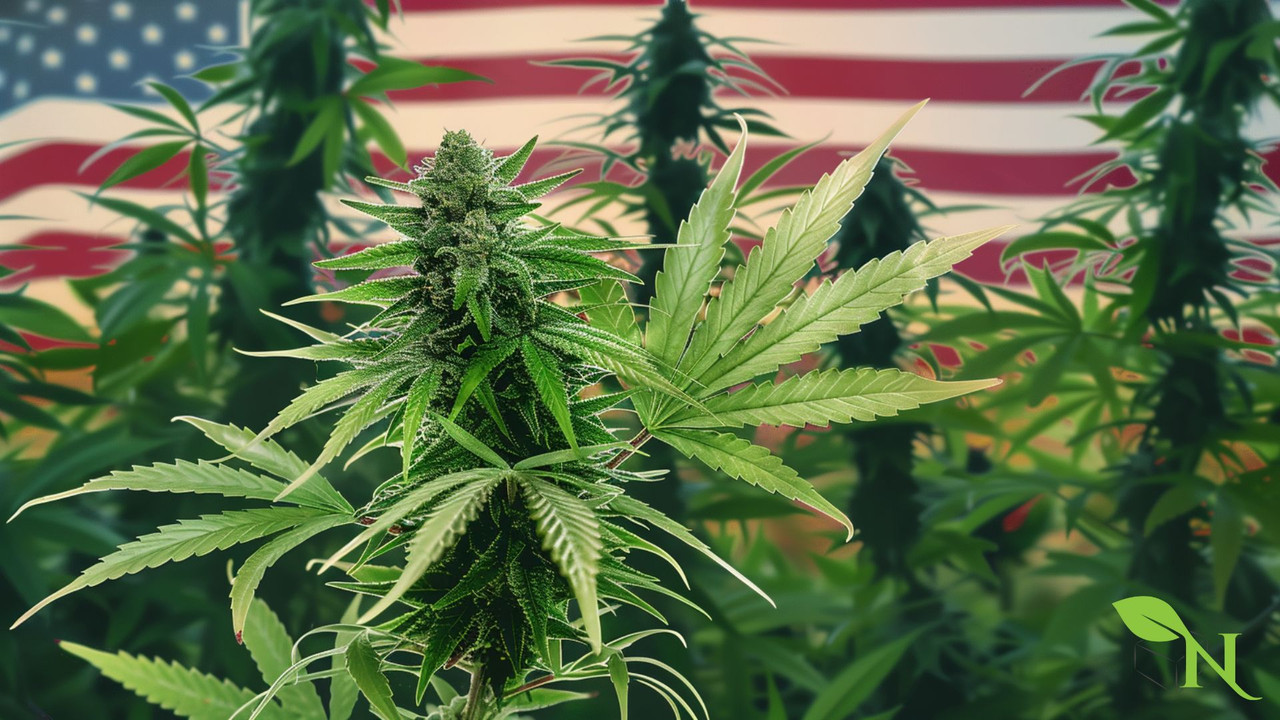Everything You Need to Know About Cannabinoid Laws in the United States
The cannabinoid market is growing rapidly, and with that growth comes a lot of confusion about the legality of different cannabinoids. In this blog post, we will break down the regulations for the most commonly known cannabinoids in the United States. We will start with Delta 9 - tetrahydrocannabinol (THC), which is the most well-known and popular cannabinoid. Then we will move on to Delta 8 - THC.
Delta 9 - THC: the most well-known cannabinoid
Cannabis contains more than 100 different chemical compounds known as cannabinoids, with delta-9-tetrahydrocannabinol (THC) being the most well-known. Delta 9-THC is responsible for the majority of the psychoactive effects associated with cannabis. It is a partial agonist of the CB1 receptor, which is found in high densities in the brain. THC has a high affinity for these receptors.
The legal status of Delta 9 THC, the most abundant cannabinoid in cannabis, has been a subject of much debate. In the United States, it is federally illegal to possess or use any form of cannabis that contains more than 0.3% Delta 9 THC on a dry weight basis. However, hemp-derived products containing less than 0.3% are not regulated by the federal government and can be legally purchased and used in all 50 states without fear of prosecution under federal law as long as they remain compliant with local regulations governing CBD products where applicable.
In December 2018, Congress passed The Agriculture Improvement Act (2018 Farm Bill) which removed industrial hemp from Schedule I classification under the Controlled Substances Act making it an agricultural commodity rather than a controlled substance at the Federal Level. This means that hemp-derived Delta 9 THC will no longer be considered an illicit drug but instead treated like other agricultural commodities such as wheat or soybeans.
It's important to note however, that while this change makes Hemp Derived Products available nationwide, individual states still have their own laws regarding its sale, possession and use, so you should always check your local laws before purchasing any type of product containing Delta 9 THC even if it's within federally acceptable limits. Additionally, some states may choose to opt-out completely meaning these types of products cannot be bought, sold, or possessed within those jurisdictions regardless of the amount present in them. States such as Idaho, Iowa, Mississippi, South Dakota, Montana & Nebraska currently prohibit any form of cannabinoid regardless if derived from industrial Hemp or not.
Delta 8 - THC: The famous cousin
The legality of Delta 8 in the United States is a complex and ever-changing topic. Delta 8, also known as Δ8THC, is one of many cannabinoids found in hemp plants and cannabis products. While it does not have the same psychoactive effects as its more well-known cousin delta 9 THC (Δ9THC), it still has some mild intoxicating properties that make its legal status complicated. While hemp-derived Delta 8 is federally legal under the 2018 Farm Bill, states have their own regulations regarding its use and sale. Basically, it is similar to the abovementioned case, thus it can vary significantly by state.
Delta 8 is considered an analog or “close relative” to Δ9THC because they share similar chemical structures with small differences that cause them to act differently on our bodies when consumed or absorbed through skin contact. Our other blog can give you a closer look at the differences between those two cannabinoids.
In order for a product containing hemp-derived Delta 8 to be legally sold in the US, it must comply with certain requirements set out by federal law:
- It must contain less than 0.3% THC on a dry-weight basis
- It must be derived from industrial hemp plants that were cultivated according to guidelines established by an approved program
- All applicable taxes or fees associated with its production or distribution should be paid as required by federal law.
Overall, in states where hemp is legal, hemp-derived delta 8 THC is generally also legal, but in states where hemp is illegal, the legal status of hemp-derived delta 8 THC can be more complicated. If you are considering using hemp-derived delta 8 THC products, it is important to familiarize yourself with the laws in your state .
Conclusion
In conclusion, hemp-derived cannabinoids, such as CBD, are legal in the United States. This is due to the passage of the 2018 Farm Bill, which legalized the cultivation, production, and sale of hemp and hemp-derived products, including CBD.
However, it is important to note that the Food and Drug Administration (FDA) has not approved CBD as a medical treatment and it is not regulated as a dietary supplement. This means that the quality and purity of CBD products can vary greatly, and it is important to do your own research and purchase from reputable sources.
If you're in the market for high quality CBD products, look no further! Our company is a legal manufacturer of CBD products that are rigorously tested to ensure purity and potency.
We understand that when it comes to CBD, quality is of the utmost importance. That's why we go above and beyond to ensure that our products meet the legal standards. In fact, we are so confident in the quality of our products that we make our lab test reports available publicly for all of our customers to see.







